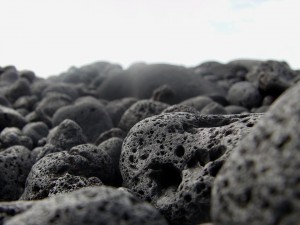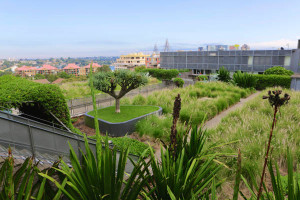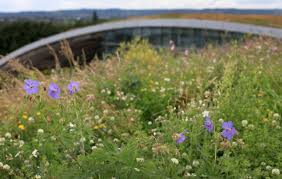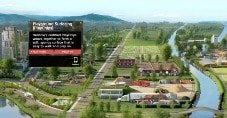Soil Structure for Green Roof Media
Green roofs or living roofs have become popular over the years. This is because they provide ecological benefits, aesthetic value and creative urban architecture. When designing a green roof, there are several factors to take into consideration. Green roof growing media is an integral part of a functioning green roof system. The best green roof media should be able to effectively maintain water retention at optimum levels for vegetation as well as facilitate stormwater management. In addition to that, Green roof media should be able to supply basic nutrients and maintain good porosity for root growth. Furthermore, it should be made up of a blend of materials that is not too heavy for a roof to support.
Components
For the best green roof medium, the growing media should contain the following;
- Lightweight volcanic aggregate such as Pumice or lava. These materials are available throughout the west coast of North America. These aggregates make a good basis for a growing medium. Pumice is somewhat porous and is lighter than most aggregates. In addition to that, it helps maintain soil structure as well as air and water movement through the soil.

- Compost or organic matter – Organic matter provides basic nutrients and is able to retain moisture. Optimum when blended with lightweight aggregates and possibly, since compost can be rich in nutrients.
- Sand required to balance organic matter and assist in soil structure.
All these materials must be used according to proven test results to manufacture appropriate media to meet various specifications.
![]()
Water retention and drainage
To enhance proper drainage of the living roof, the construction should consider a soil structure that will retain enough moisture but drain excess water. The moisture is needed to support plant growth but not stay hypersaturated. In this case, organic matter is a key component since it retains moisture and provides nutrients. Blended with lightweight aggregates and sand an optimum media for green roofs can be created.
Roofing and waterproofing details should be supplied by the respective manufacturers. As long as their specifications as guidelines are followed. The waterproof layer below the plant bed will help protect and extend the life of the membrane below.
Structure
A green roof is generally structured as follows;
- Water proof and root proof materials: This is essential for preventing water and root penetration damaging the building below.

- Drainage layer: This layer is meant to drain excess water from the living roof. Lightweight aggregate can be used as well as specific lightweight drainage materials.
- Filter fabric: This layer is designed to retain finer soil materials during drainage.
- Moisture blanket: This is designed to hold moisture for plant growth.
- Soil/growing medium: It supports the growth of the plants by providing the basic nutrients. Proper soil selection is critical to the long-term benefits of the living roof.
Soil characteristics
The following are some of the characteristics of the soil for the green roof;
- Stable structure for anchorage of plants’ root systems
- Balanced water permeability and retention
- Proper drainage
- Availability of basic nutrients
- Possess chemical, physical and biological features necessary for supporting the vegetation
- Possess allowable depth and weight
- Optimum water and air management

A good green roof medium is made up of a well-developed soil blends. A well designed green roof with proper drainage and water proofing will provide the expected results. The green roof manufacturers should fully understand the various needs and specifications of the green roof medium. Soil tests are integral part of the process and specification and should be a part of the process from the beginning.


